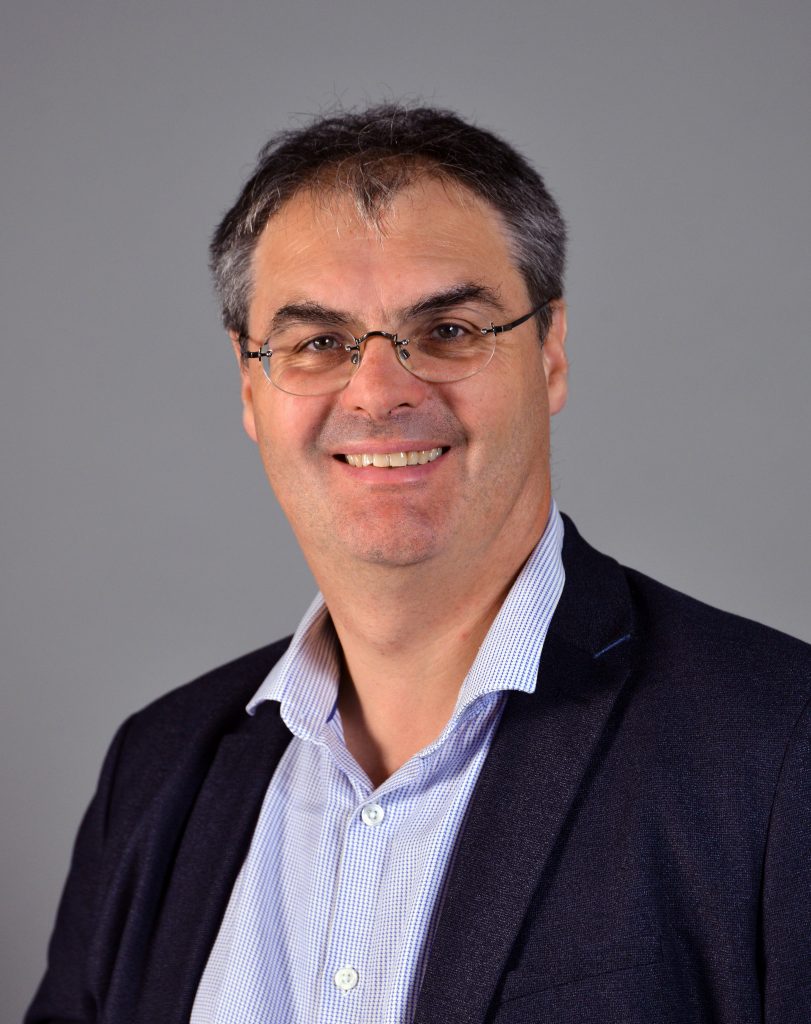
Olivier Dehaese has been elected municipal councillor of Acigné since 2008, and has held the position of mayor there since 2014. This is his second term as mayor and vice-president of Rennes Métropole. After a first mandate in charge of waste and energy, he is now responsible for climate and energy, and president of the ecological transition and urban services commission.
Air quality challenges from the perspective of a metropolis
The major challenge is that of knowledge. Which pollutants? In what concentration? How do they change over the year? What factors are at the origin of these pollutants? These elements shall enable us to target priority public policies to improve air quality. The other challenges to be met are those of informing inhabitants and raising their awareness on this subject and, finally, our collective capacity to change our behaviour.
AQMO, a project in line with the initiatives already conducted by Rennes Métropole
AQMO, whose objective is a better knowledge of air quality and the appropriation of these data by citizens, is fully integrated into the public policies of Rennes Métropole in terms of urban planning and air quality developed through various framework documents:
- the PLUi, whose PAO “Health, Climate, Energy” aims to “Limit the exposure of populations to atmospheric pollution and noise pollution”,
- the PCAET, which aims to reduce greenhouse gas emissions by 40%.
- the PDU, the main objective of which is to massively develop alternative offers to the solo car (metro line b, 100% clean buses by 2030, 1 day/5 day car-sharing objective, the bicycle express network, etc.).
AQMO, a complement to the Metropolitan Public Data Service?
In 2018, Rennes Métropole began to implement this approach, which aims to facilitate data sharing between actors in the territory, whether they are inhabitants, researchers or private companies. Setting up an SPMD raises important questions of governance and trust, which are now being studied as part of the European project RUDI.
The AQMO project brings a particularly interesting case study to the design of the SPMD, since it combines the collection of data from mobile and real-time sensors, the processing and exploitation of these data, and the dissemination of the data and results to the actors who wish to access them. For example, we could open in “open data” a synthetic cartography of the modelling carried out from the collected data, but make all the raw data available to researchers who request it.
It will also be necessary to study the consistency of AQMO data with other air quality data collected in the territory: Air Breizh regulatory data, data from citizen sensors, etc.
What added value for a municipality and its citizens?
A platform such as AQMO could be made available to local authorities or stakeholders who wish to learn more about air quality in their area. In addition to existing maps, it could, for example, be used to study different scenarios in the context of urban development operations by modelling their impact on air quality.
The question remains as to who could use the platform. This will depend on its purpose. Is it a platform for expertise or a platform for raising public awareness?
Direct access of the general public to the platform may not be the only solution, and care must be taken to avoid the risk of a multiplication of tools, platforms and information sources that may end up saturating the landscape and making it difficult to read.
In any case, we know that inhabitants are sensitive to the issue of air quality in their city. We have seen this in particular through the Ambassad’Air project developed by the City of Rennes, whose participants themselves measure air quality using a sensor that they can take with them everywhere. Residents are keen to know more about air quality, particularly near ay-care centres and schools, and on their daily journeys. To do this, we therefore need more detailed data.
AQMO in one word? “Cooperation”, because AQMO involves the participation of complementary partners who form a complete chain: bus, sensor, modelling, data analysis, provision of data, etc.
A final note
Rennes Métropole’s approach to these issues is to seek to improve the lives of its inhabitants by providing efficient and useful services that respect both public service values and climate issues. It is not a question of entering a race for technological equipment.
It is important to have a global reflection, for example on data management and digital inclusion, in order to create a more intelligent city that excludes no one.
In the same way as the AQMO project, which involves a wide variety of complementary players (researchers, private players, public service delegates, ASQA, metropolis), the smart city must be able to facilitate dialogue and collaboration within its ecosystem in order to support projects of general interest.

